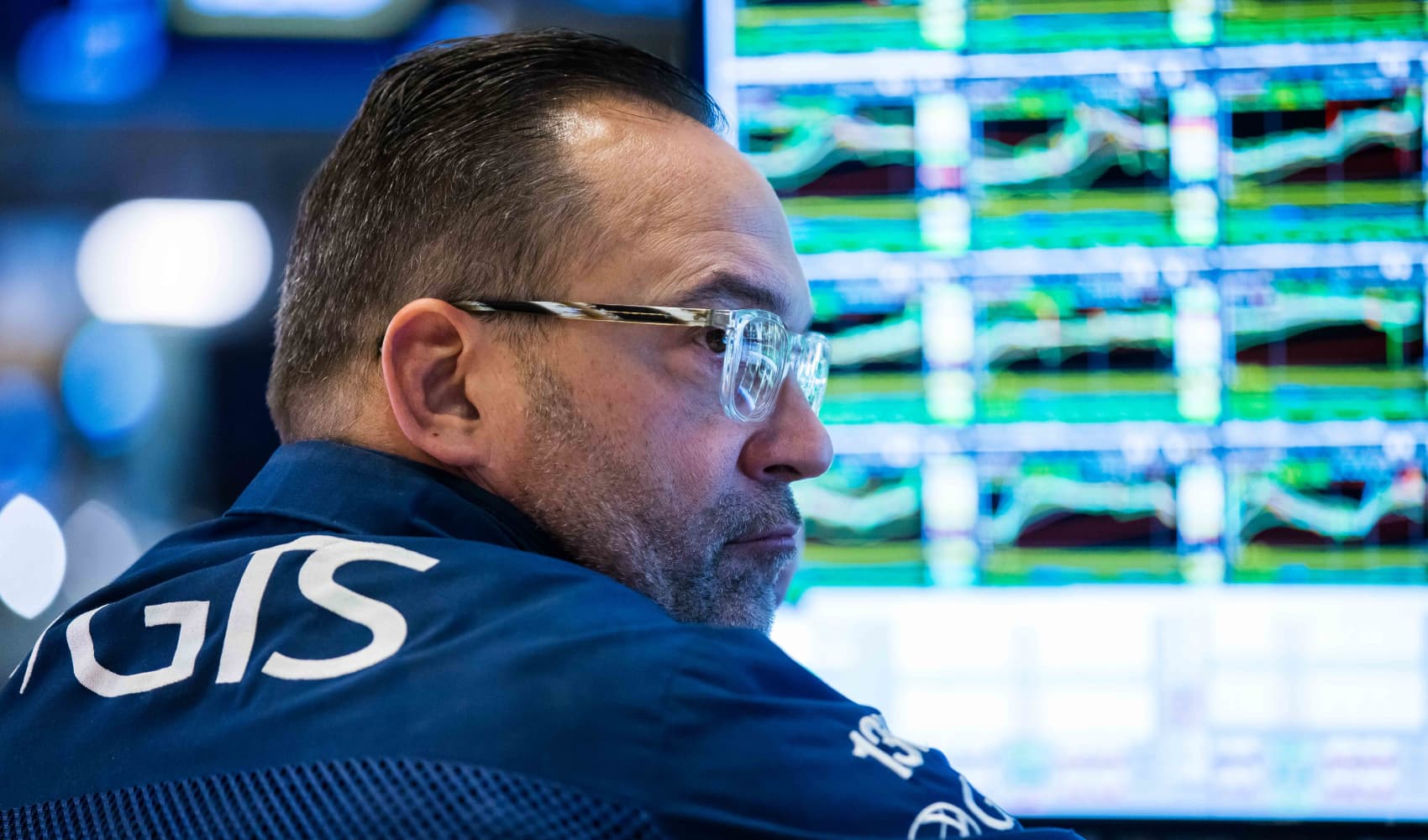
Republican presidential nominee and former U.S. President Donald Trump holds a campaign rally in Harrisburg, Pennsylvania, U.S., July 31, 2024.
- Donald Trump and his Republican allies who saw the market's global sell-off as an opportunity to attack Vice President Kamala Harris' economic record were noticeably quieter as stocks gained back some of their losses.
- Stocks plunged Monday on investors' recessionary fears spurred by a weak jobs report and worries that the Federal Reserve has kept interest rates high for too long.
- Trump has repeatedly used the stock market as a campaign talking point, attempting to take credit when stocks swing up and to blame his opponents when they go down.
After using the market's global sell-off as an opportunity to attack Vice President Kamala Harris, former President Donald Trump and his Republican allies were noticeably quieter Tuesday, as stocks gained back some of their losses.
The S&P 500 closed just over 1% higher on Tuesday, while the Dow Jones Industrial Average was up nearly 300 points or 0.8% higher, breaking a three-day losing streak.
The gains followed a widespread market slide on Monday, where the S&P dropped 3% and the Dow declined 2.6%. The market meltdown came as recessionary fears heightened, spurred in part by last week's cooler-than-expected jobs report and worries that the Federal Reserve has kept interest rates too high for too long.
Trump, the Republican presidential nominee, quickly tried to paint Monday's market plunge as the first chapter in a broader economic catastrophe, which he blamed on the de facto Democratic nominee Harris, giving the sell-off the nickname "Kamala Crash."
"TRUMP CASH vs. KAMALA CRASH!" Trump posted at one point.
His running mate, Ohio Sen. JD Vance, also piled on the blame in an X post: "This moment could set off a real economic calamity around the globe. It requires steady leadership — the kind President Trump delivered for four years."
Money Report
But as Wall Street rebounded on Tuesday, that Republican line of attack was quickly snatched away.
Trump published at least nine separate posts on Truth Social Monday, blaming the stock market slump on the administration's policies under President Joe Biden and Harris.
On Tuesday, as stocks swung back up, Trump was silent on social media about the markets.
The Trump campaign did not respond to multiple requests for comment from CNBC.
Trump's tactical shift is the result of his tendency to tie his political campaign's messages to instrinsically volatile markets. When the markets go up, he typically attempts to take credit, and when they fall, he usually blames his opponents.
In January, when the Dow and the S&P reached then-record highs, Trump said it was because investors were betting on his ability to beat Biden, who has since dropped out of the race and endorsed Harris.
"THIS IS THE TRUMP STOCK MARKET," Trump wrote in an all-caps Truth Social post, "BECAUSE MY POLLS AGAINST BIDEN ARE SO GOOD THAT INVESTORS ARE PROJECTING THAT I WILL WIN, AND THAT WILL DRIVE THE MARKET UP."
"Throughout history, I think politicians have avoided trying to peg their fortunes to the stock market as a signal of their policies or anything because the market goes up and down all around," Moody's chief economist Mark Zandi told CNBC in an interview on Monday.
"Former President Trump is the first to do that," Zandi added. "I'm confused by it."
Besides being politically risky, Trump's impulse to use the stock market as a campaign talking point also reflects a misconception about how to gauge the economy's health and what voters think about, Zandi believes.
"For most Americans, what matters, certainly at this point in time, is inflation, prices, the price of groceries, rent," Zandi said. "I think for most, [the] vast, vast majority of Americans, when they think about their own financial situation, stocks are at the bottom of the list, the very bottom."
Voters have consistently ranked the high cost of living as a top priority in polls this election cycle.
Trump has seized on that downbeat economic sentiment, criticizing the White House's policies even though the U.S. economy has been on a steady, albeit slow, post-pandemic recovery whose progress has eclipsed other developed countries.



